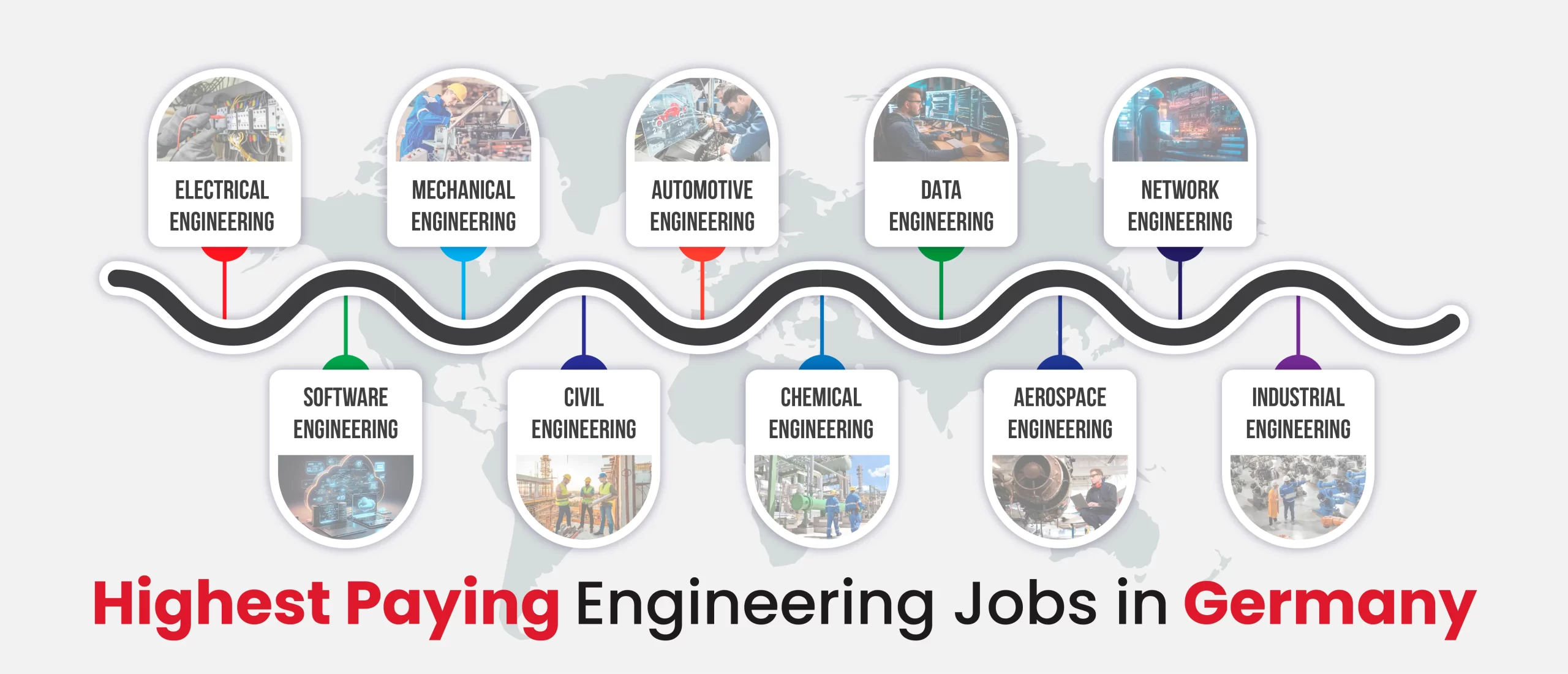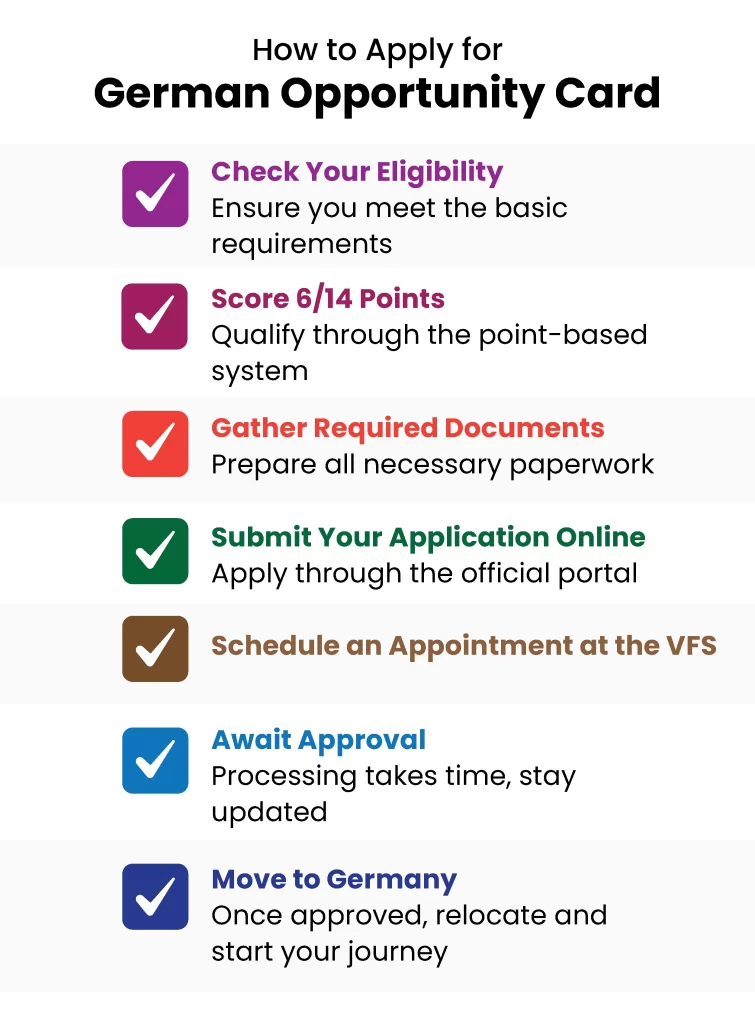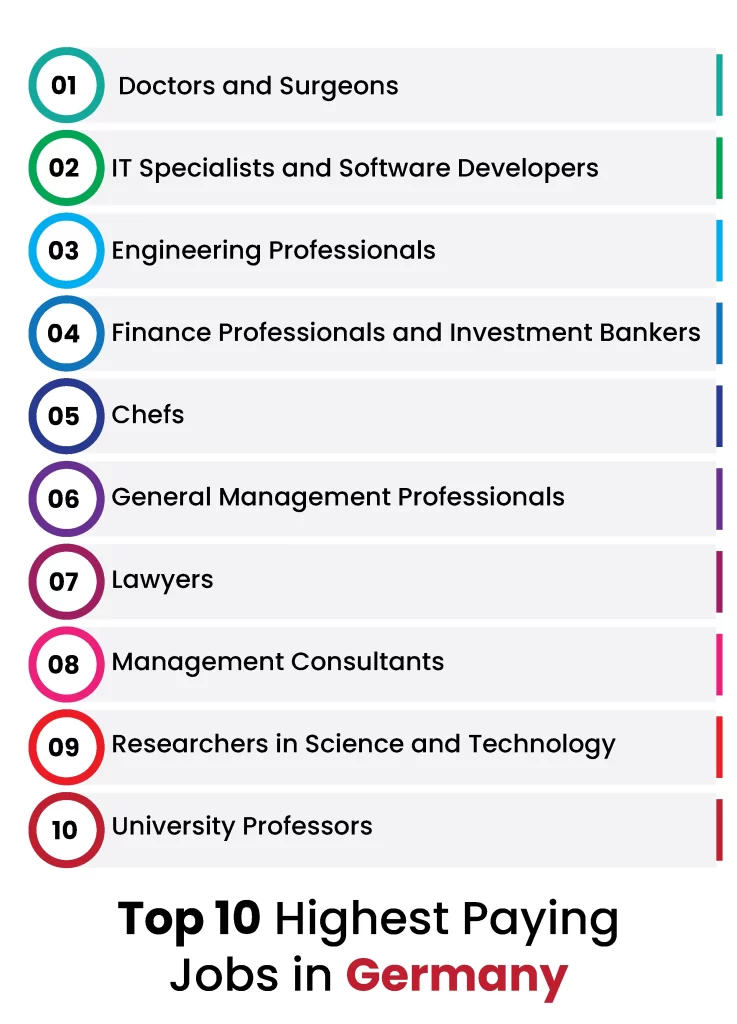A hub for engineers from all over the world – that’s what Germany is now. Did you know Germany offers some of the highest-paying engineering jobs? Being one of the global leaders in the technology, manufacturing, and automotive industries, this country provides wonderful engineering careers for skilled engineering professionals. The diverse types of engineering disciplines ensure that there are ample numbers of engineering jobs in Germany for Indians across various sectors.
This blog also sheds light on why there is a demand for different engineering jobs, engineer salaries, and best cities to work in, and how to apply for jobs that can help you land in Germany.
Why Choose Germany for Work
To choose to work in Germany is to choose a world of opportunities. There is an ample number of engineering jobs in Germany. Here are a few reasons why you should consider this country to work.
Engineering Driven Economy: The engineering sector is driving Germany’s economic sector to heights. The country’s commitment to innovation, cutting-edge technologies, and renewable energy, provides these professionals with a platform to work on ground-breaking technologies and with global industry standards.
Competitive Salary & Job Security: Germany offers competitive salaries with pensions and other benefits, across all types of engineering disciplines. They also enjoy job security. This is because there is a high demand for their skills as the country has a strong industrial base and a high demand for engineering professionals everywhere in the country.
Industry 4.0: Industry 4.0, is a movement that integrates smart technologies, automation, and data exchange into manufacturing. The shift towards digital manufacturing allows professionals to work on cutting-edge projects thus contributing to the digital transformation of industries and helping them gain experience that focuses on innovation and future-focused technology areas.
Green Tech Opportunities: Being a pioneer in sustainability and renewable energy, the transition to green energy is reshaping industries, this provides engineering professionals with an opportunity to work with transformative green technologies which will eventually contribute to a greener future. This focus will create a positive and lasting environmental impact on Germany.
Collaboration between Public and Private sectors: The collaboration between the public and private sectors leads to high levels of stability and funding for ongoing and future research and industrial and developmental initiatives. Engineering professionals are provided with the opportunity to drive technological advancement and the chance to work alongside leading industrial companies.
Highest Paying Engineering Jobs in Germany

Let’s take a look at the highest-paying engineering jobs in Germany, why each profession is in demand and the yearly salary range for each job. Do bear in mind, that this is an average salary, this will vary based on the industry, experience, and location.
1. Electrical Engineering
The country, renowned for its technology leadership, has a high demand for Electrical engineers, hence, creating numerous engineering jobs in Germany which attracts people from all over the world. World-known companies like BMW and Siemens offer attractive salary packages reaching up to €100,000 annually. They are employed across various industrial sectors like automation, automotive, energy, telecommunications, and many more.
Electrical Engineer Job Description
They develop, design, and maintain mechanical equipment, and systems, and create prototypes and blueprints with the help of Computer-Aided Design(CAD) software. They oversee the manufacturing process and collaborate with other internal teams.
Salary for Electrical Engineer in Germany
| Experience Level |
Salary (€/yr) |
| Freshers |
€46,977 |
| Mid-Career |
€59,782 |
| Experienced |
€70,221 |
2. Software Engineering
Being the highest-paid engineers in the engineering sector, the demand for Software professionals increases with technological advancements. They get the chance to work with cutting-edge technologies and are expected to have a high knowledge of Artificial Intelligence, Cloud Computing, and Cybersecurity.
Software Engineer Job Description
They design software, write code using various programming languages, and test and debug software, and systems to ensure they are error-free and efficient. They optimise performance, maintain and update software, and collaborate with other teams to see if the final product meets the user’s needs and requirements.
Salary for Software Engineer in Germany
| Experience Level |
Salary (€/yr) |
| Freshers |
€48,580 |
| Mid-Career |
€63,994 |
| Experienced |
€77,661 |
3. Mechanical Engineering
Mechanical Engineers work in manufacturing, automotive, aerospace and several other industries. Being one of the vital professions, the country requires skilled professionals as mechanical engineers are the ones that drive innovation and maintain advanced systems.
Mechanical Engineer Job Description
Designs, analyses and tests the performance of mechanical systems. Oversees the assembling processes and ensure that top-quality material is used. They also troubleshoot and provide solutions, making sure the equipment runs smoothly.
Salary for Mechanical Engineer in Germany
| Experience Level |
Salary (€/yr) |
| Freshers |
€57,825 |
| Mid-Career |
€82,497 |
| Experienced |
€102,389 |
4. Civil Engineering
There is a high demand for Civil Engineers in various sectors like infrastructure, construction, and public works. The focus on urban development and restructuring of old buildings is an added factor why these professionals are needed everywhere in the country.
Civil Engineer Job Description
They design, build, and maintain developmental structures, ensuring they are safe and efficient for all people and sustainable in the long run. They also ensure the projects comply with the safety and environmental regulations.
Salary for Civil Engineer in Germany
| Experience Level |
Salary (€/yr) |
| Freshers |
€39,266 |
| Mid-Career |
€50,868 |
| Experienced |
€89,000 |
5. Automotive Engineering
According to Statista’s latest reports, Automobile workers in Germany contribute to the industry worth 207.3 billion euros. Being the heart of the country’s economy, there are many job opportunities for Automotive engineers in the automotive industry, which is by far the strongest in terms of export, turnover, and research.
Automotive Engineer Job Description
Designs, develops, and tests software, and conduct simulations and testing on vehicles, components, and subsystems to ensure they are safe. They do crash tests to check for vehicle durability and team up with manufacturing teams to ensure cost-effective production and ensure the designs and processes comply with European automotive safety standards. Hence, there is a wide range of automotive engineering jobs in Germany available.
Salary for Automotive Engineer in Germany
| Experience Level |
Salary (€/yr) |
| Freshers |
€59,201 |
| Mid-Career |
€84,338 |
| Experienced |
€104,674 |
6. Chemical Engineering
Chemical Engineers are in consistent demand because of the increasing number of pharmaceuticals, chemical plants, and manufacturing processes. According to Cefic, chemicals and pharmaceuticals are the third-largest industry in Germany, behind automotive and machinery, with a 2023 turnover of €225.5 billion, and yet there is a shortage of chemical engineers all over the country.
Chemical Engineer Job Description
Design and optimise chemical processes in the manufacturing sector, ensuring safe and efficient operations of chemical plants and equipment by analysing inefficiencies or failures. They develop sustainable and environment-friendly solutions and monitor production processes to maintain quality and consistency.
Salary for Chemical Engineer in Germany
| Experience Level |
Salary (€/yr) |
| Freshers |
€63,289 |
| Mid-Career |
€90,424 |
| Experienced |
€112,320 |
7. Data Engineering
Industries like finance, technology, and healthcare have been increasingly relying on big data. Hence, the demand for data engineers increases day by day. They are responsible for building and optimising data pipelines which collect, process, and store large amounts of data.
Data Engineer Job Description
Design, develop, and maintain data processing systems for large datasets. They automate data collection, transformation, and storage ensuring data consistency, integrity, and performance optimisation. They also build and manage data by collaborating with data scientists and analysing issues.
Salary for Data Engineer in Germany
| Experience Level |
Salary (€/yr) |
| Freshers |
€69,051 |
| Mid-Career |
€98,229 |
| Experienced |
€121,915 |
8. Aerospace Engineering
The demand for aerospace engineers in Germany has increased driven by advancements in aviation technology, space exploration, and defense sectors. Many leading companies are actively recruiting engineers to sustain their growth as there is a talent gap.
Aerospace Engineer Job Description
Design, develop, implement, and test spacecraft, aircraft and other systems to ensure they are safe and performance meets the standards by performing structural analysis. They conduct research and studies to enhance the knowledge of aerospace systems and components used. Therefore, the market for engineering jobs in Germany is thriving and full of potential.
Salary for Aerospace Engineer in Germany
| Experience Level |
Salary (€/yr) |
| Freshers |
€44,788 |
| Mid-Career |
€62,983 |
| Experienced |
€77,914 |
9. Network Engineering
As technology grows, companies expand their digital infrastructure, and the increasing demand for cybersecurity, this industry requires Network Engineers more than ever. The increasing dependency on cloud services is also another factor why these professionals have a strong demand.
Network Engineer Job Description
Network Engineers deal with network design, implementation, monitoring, configuring, optimisation, upgradation, troubleshooting, and maintenance. They deal with security management and documentation. They also collaborate with IT teams to provide network solutions and provide support to end-users.
Salary for Network Engineer in Germany
| Experience Level |
Salary (€/yr) |
| Freshers |
€64,911 |
| Mid-Career |
€92,741 |
| Experienced |
€115,198 |
10. Industrial Engineering
Industrial engineers are hired across sectors like healthcare, banking, energy, and transportation, thus they are in high demand across large-scale industries in Germany. They are professionals who work using modern technologies and methods. Suffice to say, that the country boasts an abundance of engineering jobs in multiple fields.
Industrial Engineer Job Description
They implement the use of efficient driven strategies and compliance with environmental and safety standards. They analyse and improve the efficiency of the equipment and materials used, the manufacturing process and the products.
Salary for Industrial Engineers in Germany
| Experience Level |
Salary (€/yr) |
| Freshers |
€39,548 |
| Mid-Career |
€58,000 |
| Experienced |
€85,000 |
Best Cities in Germany for High Paying Engineering Jobs
| S.No |
Engineering Sector |
Best Cities in Germany |
| 1. |
Electrical Engineer |
Munich, Stuttgart, Frankfurt, Berlin |
| 2. |
Software Engineer |
Berlin, Munich, Hamburg, and Frankfurt |
| 3. |
Mechanical Engineer |
Cologne, Munich, Stuttgart, Hamburg |
| 4. |
Civil Engineer |
Cologne, Munich, Frankfurt |
| 5. |
Automotive Engineer |
Stuttgart, Munich, Wolfsburg |
| 6. |
Chemical Engineer |
Ludwigshafen, Berlin, Frankfurt, Munich |
| 7. |
Data Engineer |
Berlin, Munich, Frankfurt |
| 8. |
Aerospace Engineer |
Hamburg, Bremen |
| 9. |
Network Engineer |
Frankfurt, Berlin, Munich |
| 10. |
Industrial Engineer |
Stuttgart, Munich, Frankfurt |
How to get Engineering Jobs in Germany
Step 1: Research the Demand for your Specific Engineering Profession
Before you start applying, make sure that your engineering profession and skills are in demand in Germany. Check for labour shortages too in the different federal states of Germany.
Step 2: Make sure that your Qualifications are Recognised by Germany
Ensure that your foreign educational qualifications are recognised by the Anabin Database, the official recognition database. If it is recognised, your chances of getting hired increase further, if not, some employers may hire you, but it might be difficult to get a job.
Step 3: Check for Language Requirements
Most companies often insist on English language requirements. However, knowing German is often preferred. Taking a German language course from approved institutions by the German government will help you meet the eligibility requirements.
Step 4: Search and Apply for Jobs
You can apply for jobs that suit your professional skills, by searching on job sites and the career pages of companies that you are interested in directly. You can also approach recruitment agencies to help you find engineering jobs in Germany.
Step 5: Apply for a Visa
Apply for a work visa permit. Ensure you have a job offer, qualifications, and sufficient funds for your stay.
- Explore German Opportunity Card: A visa for professionals without a job offer yet. This is a point-based system on education, language skills, work experience, and age. If you meet the criteria, you can live in Germany for a year while looking for a job in your field.
- Consider EU Blue Card: If you already have a job offer, then an EU Blue Card is the perfect option for you. This work and residence permit allows easy access to the German Labour Market, work in Germany and other benefits.
- Skilled Worker visa: This visa is for individuals who have vocational training or a university degree and a job offer in Germany.
Conclusion
So, to wrap up, Germany’s Engineering sector offers high-paying jobs, the opportunity to work in Germany with top industries, and an exceptional high-quality life. Whether you want to flip the switch from professional challenges to a balanced lifestyle, Germany is an excellent choice for engineers to bloom in both personal and professional domains.
If you want to know how to begin your journey from zero and land a strong profile, contact CanApprove for help with a personalised profile evaluation, visa application, and more.
Why wait, contact us today!
Frequently Asked Questions ( FAQ )
Which engineer is highly paid in Germany?
Software engineers and data engineers are the most highly paid engineers in Germany, followed by network and chemical engineers.
What engineering jobs are in demand in Germany?
The most in-demand engineering jobs are Electrical, Software, Mechanical and Civil engineering. Entry-level professionals from these sectors earn up to €46,000 to €58,000 per year.
How much is an engineer paid in Germany?
Engineer Salary depends upon the types of engineering discipline, experience, and location. Engineering professionals earn an average salary ranging from €35,000 to €75,000 for entry-level, €50,000 to €98,000 for mid-career, and €70,000 to €110,000+ for experienced roles.
Which city in Germany is best for engineering jobs?
The best cities for engineering jobs in Germany are Frankfurt, Munich, Berlin, Stuttgart and Hamburg. These cities are hubs for different types of engineering professionals.
Can I get a job in Germany if I speak English?
Yes, you can get engineering jobs in Germany if you speak English. However, knowing basic German is highly recommended for daily life, interacting with colleagues and accessing better job opportunities.






